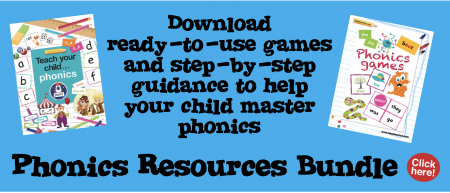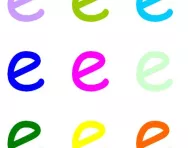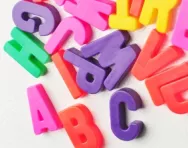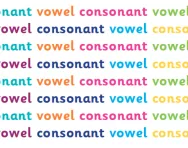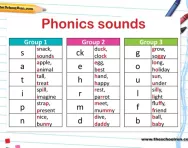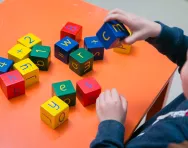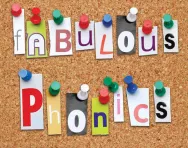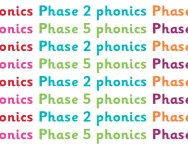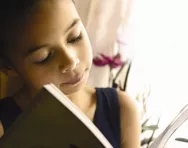Important update from TheSchoolRun
For the past 13 years, TheSchoolRun has been run by a small team of mums working from home, dedicated to providing quality educational resources to primary school parents. Unfortunately, rising supplier costs and falling revenue have made it impossible for us to continue operating, and we’ve had to make the difficult decision to close. The good news: We’ve arranged for another educational provider to take over many of our resources. These will be hosted on a new portal, where the content will be updated and expanded to support your child’s learning.
What this means for subscribers:
- Your subscription is still active, and for now, you can keep using the website as normal — just log in with your usual details to access all our articles and resources*.
- In a few months, all resources will move to the new portal. You’ll continue to have access there until your subscription ends. We’ll send you full details nearer the time.
- As a thank you for your support, we’ll also be sending you 16 primary school eBooks (worth £108.84) to download and keep.
A few changes to be aware of:
- The Learning Journey weekly email has ended, but your child’s plan will still be updated on your dashboard each Monday. Just log in to see the recommended worksheets.
- The 11+ weekly emails have now ended. We sent you all the remaining emails in the series at the end of March — please check your inbox (and spam folder) if you haven’t seen them. You can also follow the full programme here: 11+ Learning Journey.
If you have any questions, please contact us at [email protected]. Thank you for being part of our journey it’s been a privilege to support your family’s learning.
*If you need to reset your password, it will still work as usual. Please check your spam folder if the reset email doesn’t appear in your inbox.
What is a digraph?
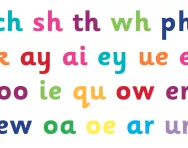
What is a digraph?
A digraph is two letters that make one sound. The digraph can be made up of vowels or consonants.
A trigraph is a single sound that is represented by three letters.
Consonant digraphs are taught in Reception. There is then a whole range of vowel digraphs that are taught in Year 1.
Consonant digraphs
Vowel digraphs
These are groups of two letters – at least one of which is a vowel – that make a single sound, for example, the letters ow in the word 'slow.'
When teachers teach phonics, they tend to look at one sound and then show children the various ways this can be made and written down as a grapheme (a combination of letters).
For example: true, food, crew all have the same /oo/ sound, represented by a different digraph (highlighted in bold) each time.
Day, rain and they also all contain the same sound (/ai/), but are represented by a different digraph each time.
Teachers will also teach children about the split digraph. This is where a digraph, such as ae, ie, oe, ee, ue is 'split' by a consonant, for example:
- In the word pie, you have a digraph made up of ie.
- in the word pine, the digraph has been split by the letter n to make a new word, 'pine'.
Split digraphs are represented like this: a_e, i_e, o_e, e_e, u_e.
Teachers may give children a group of words and then ask them to put them into groups according to the spelling of a certain sound, for example, they may give them the following word cards:
fair mare bear care tear
lair stair dare hair pear
and ask them to arrange them into the following groups according to the way their digraphs are spelled:
- ai
- a_e
- ea
Teachers will tend to point out various digraphs to children as they read books. They may be given word cards to put into groups, according to their digraphs. They will also be given phonic activities that encourage them to write words containing certain digraphs. It is very important for children to be given the chance to practise writing words in order to learn the correct spelling.
